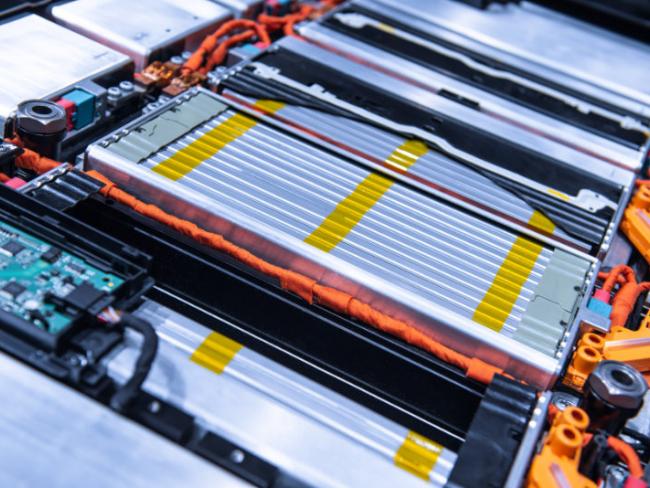6 March 2024

Battery packs are at the heart of electric vehicles. Photo Sergii Chernov/Shutterstock.
Somerset has been selected as the site for a new electric vehicle battery manufacturing facility. The plant will supply batteries for Tata-owned Jaguar Land Rover (JLR). It was the site of a Royal Ordnance Factory for over sixty years until it closed in 2008.
Agratas, Tata Group’s global battery business, has confirmed that a gigafactory will be built on the curiously named Gravity Smart Campus in Puriton near Bridgwater. The campus has a stated net-zero objective; it hopes to attract other suitable investments. Agratas will be the first occupier, taking around 50 per cent of the land.
The £4 billion investment has also had £500 million in financial support from the British government. Automobile industry trade union Unite welcomed the investment when it was proposed last July. But it said that a long-term industrial strategy was needed instead of the government’s piecemeal approach.
Promising
Although a previously planned battery production plant in Blyth, Northumberland by Britishvolt came to nothing in January 2023 when it ran out of funds, this looks more promising. But until construction is under way on this project there is always a risk that this may also come to nothing.
The factory is planned to create up to 4,000 jobs with further jobs in the supply chain. It is set to begin production in 2026. JLR will be the first customer, but it will also supply other car manufacturers. The 40 GWh of battery cells produced annually will be enough to supply around 500,000 vehicles. Batteries could also be used for commercial energy storage and commercial vehicles, as well as some two-wheelers.
Assumptions
The total plans announced so far – including the 40 GWh plant – are apparently enough to cover only about half of the 100 GWh of electric vehicle (EV) production proposed by 2030. That figure assumes that such vehicles become much more popular in Britain than they are currently.
There is much talk in this case of green jobs and a green revolution that will come about with an end to fossil fuel vehicles. The production of new petrol and diesel vehicles was intended to end by 2030, now delayed to 2035.
But there is still a great deal of uncertainty about the size of the EV market and the pace of transition. Volkswagen for example has scaled back its plans.
Other plans
There is another proposal for a gigafactory, on land near Coventry Airport, but it’s not yet certain to go ahead. West Midlands Gigafactory, a joint venture between the airport owners and Coventry City Council, raised hopes that Tata would invest there. Their plan is for an even larger factory, with an eventual capacity of 60 GWh.
At the time the Coventry venture was announced in 2021, Unite called for direct government support across Britain to develop this emerging industry, of great importance to the automotive sector. The location is within a newly designated investment zone. The government is offering funding of £35 million (out of a total of £160 million for the zone) to help secure the massive investment that such a factory will need.
• The administrators of Britishvolt made a deal to sell its assets to Recharge Industries, an Australian company, in February 2023. Promises of fresh investment have not materialised and Recharge apparently did not complete the purchase. The administrators are now looking for other buyers.
